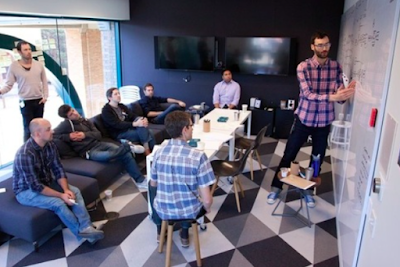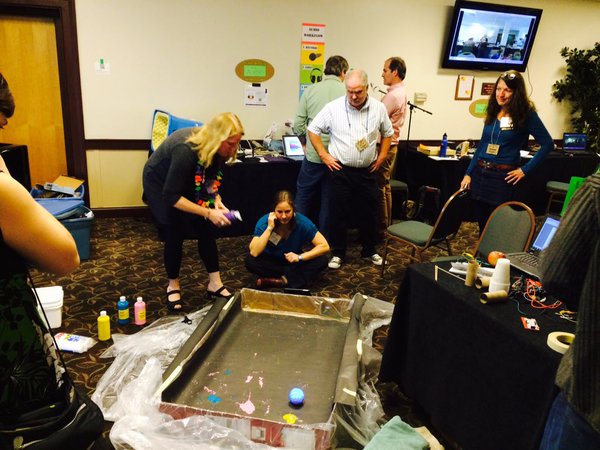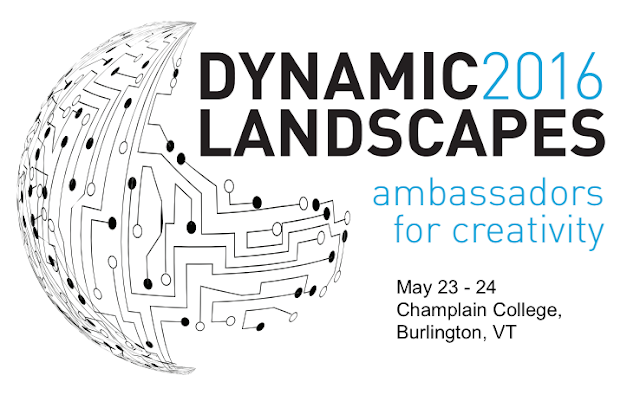I posted this on Twitter when I was a bit frustrated...
And it got quite a response.
Homework.
Don't roll your eyes. ; )
Homework has been debated... and I mean a TON over the years.
I often wonder how much 'family time' would improve if kids didn't have 3-4 hours of homework per night. #vted #edchat
— Adam Provost (@batman44) November 19, 2015
And it got quite a response.
Homework.
Don't roll your eyes. ; )
Homework has been debated... and I mean a TON over the years.
I've watched for many years as my own children have labored through hours of homework each night. We've had some interesting discussions over how much of that work they feel actually has value. I listen mostly and keep my observations silent.
Most often their homework is in excess of three hours per night. It's increasingly rare that they get downtime in the evening or get any significant family time save our parental demand to eat together, uh, when we can.' Extra curricular practices and jobs often interfere with any sort of schedule that puts us all together in the evening. We eat separately often, and struggle to carve out time to actually 'connect.'
Unfortunately over much of their academic lives homework has carried penalty based grades and wasn't viewed as formative assessement. That's another discussion.
I've thought many times in my life how I'd love to reclaim so much of that 'homework' time and actually do something else with my children.
And yes, I do 'help' with homework when I can and try to be involved. But it's not substantial or practical to think I can be involved often.
Most often their homework is in excess of three hours per night. It's increasingly rare that they get downtime in the evening or get any significant family time save our parental demand to eat together, uh, when we can.' Extra curricular practices and jobs often interfere with any sort of schedule that puts us all together in the evening. We eat separately often, and struggle to carve out time to actually 'connect.'
Unfortunately over much of their academic lives homework has carried penalty based grades and wasn't viewed as formative assessement. That's another discussion.
I've thought many times in my life how I'd love to reclaim so much of that 'homework' time and actually do something else with my children.
And yes, I do 'help' with homework when I can and try to be involved. But it's not substantial or practical to think I can be involved often.
I hear this struggle in many circles of friends who have middle through high school age students... and most importantly from students themselves. I talk with students about it everywhere I go.
Disclaimer... I work in education and I've always wondered and challenged the value of excessive amounts of homework.
Often relentlessly.
Often relentlessly.
I collect information about the business of 'homework' on the web. For nine years it is was part of a project based learning ramp up I did with high school students on how technology is effecting education. Those projects included student analysis and parent interviews each year... and were very telling.
I've read countless articles, journals and such and I have interviewed many experts on the topic. I also broached the topic with over 50 schools worldwide as part of a sabbatical exploring innovation in education. Yup. It's a weird hobby I guess.
I've read countless articles, journals and such and I have interviewed many experts on the topic. I also broached the topic with over 50 schools worldwide as part of a sabbatical exploring innovation in education. Yup. It's a weird hobby I guess.
So I decided to do a small survey of my own finally. I surveyed 60 people from three different schools as follows:
20 students in grades 9-12
20 adults who work in 9-12 education
20 parents of children in 9-12 education
Each group was asked various questions and the first was about 'homework.'
Without entering the debate of should we have homework or not, or even what constitutes value in homework, I focused simply on 'volume.'
Of the students surveyed, all 14 of 20 reported having more than 2 hours per night.
10 of 20 reported having three hours or more.
4 reported having more than four hours per night.
3 out of 20 reported 5 or more hours per night.
When surveying parents, 18 of 20 reported that their children have too much homework.
Homework was also a hot issue on the survey over school breaks. Of the 20 students surveyed, all 20 reported having homework in excess of 15 hours over a week long break... that means roughly two full working days of homework.
Of the 60 people surveyed, the breakdown for whether we should have homework over breaks / vacations lays out as follows:
Students:
No: 20
yes: 0
Parents:
No: 20
yes: 0
Adults in education:
No: 12
Yes: 8
That's an interesting split isn't it?
Many teachers reported they were encouraged to give homework over breaks.
Many teachers reported they were encouraged to give homework over breaks.
Of course, one student story may seem biased to thread into a report such as this, but, I couldn’t resist.
Homework management policies are in place in many schools throughout the country. Many allocate extensions for folks with heavy workloads, extended extracurricular events, personal issues, and the like. Again, extending homework excessively into the evening, and on school breaks and vacations is part of that school time creep that is robbing students of valuable time to connect with family and to actually take a break or to pursue other interests.
We sort of understand in the workplace that a 15-16 hour workday is 'too much.' Just not so much in education.
What does the student day, on average, actually look like at your schools? Are we actually asking people to practice what we preach... or are we making a series of unrealistic demands that they just need to figure out?
 |
Calls for 'More Rigor'
I've had many discussions in schools about 'increased calls for rigor.' All too often those calls for more rigor are simply unsophisticated calls for 'more.'
The debate needs to be more thoughtful.
If we start and continue meaningful discussions on the amount of homework... we may find we're kidding ourselves. When we boast that we need and value 'family' time, encourage kids to pursue their own interests, and even try 'reading for fun' then we should put more thought into analyzing what a student day is actually like.
What if we discover that kids are actually pursuing less rigorous classes because their personal lives can't handle or be restructured to accommodate highly excessive homework? Sound elitist? it is actually. Such practices punish kids and families. It prevents them from exploring opportunities.
Here's are four simple recommendations on homework
1. Ask teachers to analyze how much homework is given and try to make reductions. And then keep doing it. Such practices force deeper pedagogical thinking about what's actually going on during the day in schools and how classes are structured.
2. Make the practice formative and not punitive. For many students with troubled home lives the only answer shouldn't be 'try harder.'
2. Make the practice formative and not punitive. For many students with troubled home lives the only answer shouldn't be 'try harder.'
3. Don't give homework over breaks or holidays. Period. Actually encourage people to take a break. A Thanksgiving break, with travel often involved, and having 8-15 hours of homework is, well, not a break rather it's a stress inducer.
4. If an administrator boasts statements of 'increasing rigor,' I'd encourage people to start asking thoughtful questions. What does more rigor 'actually' mean and how does it translate into student and family lives? "Doing more and faster," as Diana Laufenberg put's is, "isn't a sustainable solution."
I received a note from Ned Kirsch, Superintendent of Franklin West Supervisory Union and they are diving into a 'no homework' experiment at a middle school. This is a good read, and a bold initiative. Interesting that they've received "no complaints" about the decision too ; )
I received another note from a person I used to teach with that inspired me to finally get this entry online:
It was rewarding. Even if I'm not there anymore ; )
Slow change... but change nonetheless ; )
Status quo can evolve.
I received another note from a person I used to teach with that inspired me to finally get this entry online:
"No homework over breaks anymore and a new school schedule that builds in PD and callbacks for students to get help. Both moves have your fingerprints all over it."
It was rewarding. Even if I'm not there anymore ; )
Slow change... but change nonetheless ; )
Status quo can evolve.
What are the number of hours in a student day look like from the survey? We'll take a look next.
#vted @betavt
pictures:
1. greenbookblog.org
2. Smithsonian.com
2. Smithsonian.com
3. burnsmcdmendia.com
4. staceyblackman.com








